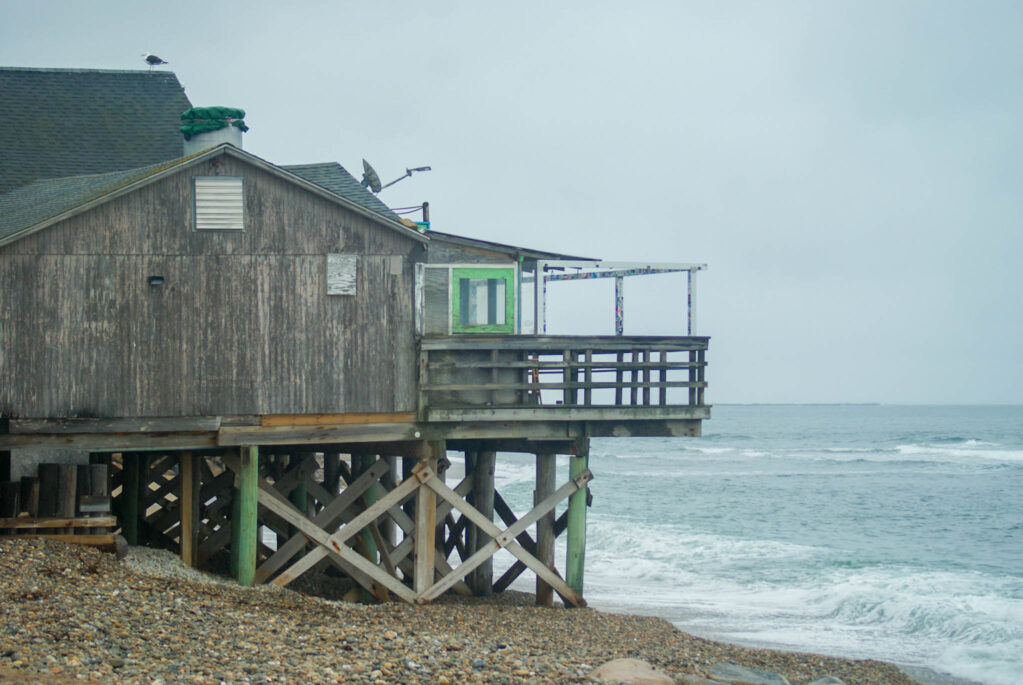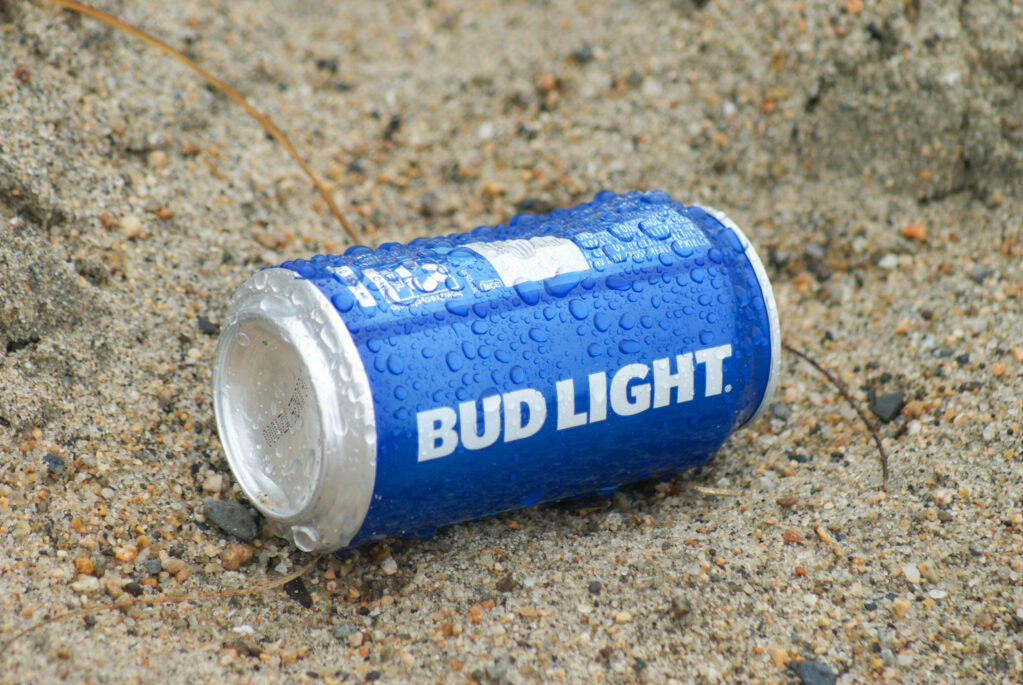

PHOTO CREDIT: Abbie Chipps | News Editor
A Bud Light can on the beach outside of Ocean Mist.
Ocean side view of Ocean Mist.
Plastic cups and straws litter the sand and sea surrounding Ocean Mist, a South Kingstown beach bar, which some University of Rhode Island students deem as environmental negligence.
Located at 895 Matunuck Beach Road, Ocean Mist has outdoor seating and a deck that overlooks the Atlantic Ocean. Its “unique location” creates a responsibility to consider conservation efforts, according to Student Action for Sustainability President Kiersten Sundell.
SAS, a student-led organization at URI, brought Ocean Mist into the climate change conversation through a Google Form petition on April 9, according to Sundell. The petition garnered 350 signatures as of Wednesday morning.
The “Reduce Ocean-Bound Plastic in Matunuck” petition demands that Ocean Mist either phase out or outright eliminate plastic straws and also requests the business to revise their cleanup protocol.
Sundell, along with other fourth-year students from environmental science and wildlife conservation classes, started going to Ocean Mist this academic year. Students visited the beach bar every week and began to collect photos of the establishment’s nearby land.
“We [were] constantly seeing cups and straws falling over the deck pretty much every Saturday,” Sundell said. “So that’s been going on all year and we’ve had a consistent presence there.”
SAS reached out to Ocean Mist to inform the business of their findings, according to Sundell. Sundell said the establishment responded “negatively” to student outreach, so SAS turned to speech they allege to be more protected: petitioning.
Ocean Mist did not issue a statement to the The Good Five Cent Cigar.
Sundell enrolled in NRS 406: Wetland Wildlife Management. The course had students research winter seabirds in and around Moonstone Beach in South Kingstown’s Trustom Pond National Wildlife Refuge.
“We were just walking along the beach [and] we noticed so many straws, and we made the connection of ‘OK, we’re seeing straws fly over the deck every Saturday at [Ocean Mist] and then we’re seeing straws in our lab washing up,’” Sundell said. “They’re all in the sand.”
The wildlife course required a research project, according to Sundell. Wanting to look deeper into the effects of scattered trash on beaches, Sundell, future SAS President Kate Stanwood and fourth-years John Nadeau and Kayla Reffelt honed their efforts on what Sundell called “bar trash.”
Bar trash encompasses plastic cups and clear plastic straws, according to Sundell. The four students traced the presence of such trash across three areas: Moonstone Beach, South Kingstown Town Beach and Scarborough State Beach. Their research began April 3 and concluded April 16; the analysis launched on Wednesday.
Scarborough was the project control, according to Sundell. Although the beach houses Bon Vue Inn, a two-level Narragansett bar, the business does not offer straws to customers. Ocean Mist has containers where customers can grab straws but does not directly serve them with drinks.
SAS asked Ocean Mist to not give out plastic straws, according to fifth-year and SAS member Nick Powers.
“We were met with a lot of backlash for that,” Powers said. “[Ocean Mist was saying] that people are willingly taking the straws, they’re not giving the straws out – they’re just sitting there. They could just as easily not put them out.”
The student research team found that the presence of plastic cups and straws influences where an endangered bird species, called the piping plover, chooses to nest, according to Sundell. Birds completely avoided places with bar trash.
A lot of people care about this issue, a lot of college students especially,” Sundell said. “It’s just hard to organize an effort that is actually effective at combating the problem while not wanting to damage the business. Like, everyone loves Ocean Mist.”
Reaching and understanding businesses, policymakers and students can be challenging through solely Instagram activism, according to Sundell. Creating a petition allows SAS to educate individuals beyond the URI community, as well as gauge the project’s reach.
“We’re not trying to hurt [Ocean Mist’s] reputation or hurt their business’ income,” Sundell said. “We just want to protect the beach that they’re physically situated on.”
After posting the petition, Kate Stanwood reposted it to local Facebook groups in Washington County, according to Sundell. The posts were “quickly removed.”
Continuing to analyze beaches and monitor local responses to the petition is a mechanism to freely educate environmental policymakers, business owners and students that visit beach bars, according to Sundell.
“It is scary to try and combat a dominant local business that’s beloved by the community, but at the same time, it shouldn’t be controversial to advocate for keeping our beaches and our ocean clean, especially in a protected breeding habitat,” Sundell said.
The student researchers will reach out to Ocean Mist once their research is complete and not under review, according to Sundell.




